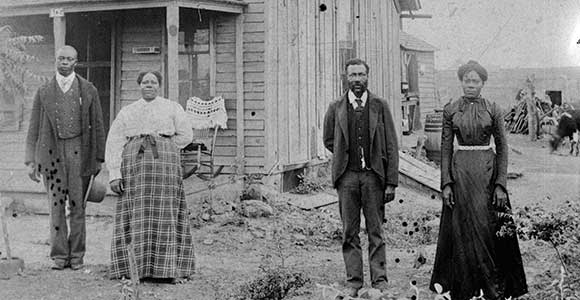Precedents have been set as other groups who have been harmed by the government have received reparations. As for the tired worn out excuse of “why should I pay for something I did not do,” here is an example of reparations made in modern times for things done by past generations.
I am quite sure no one living in 1980 was alive when the U.S. government made the Fort Laramie treaty with the Sioux Nation or were participants in Custers violation of that treaty. Nor were they alive when President Grant decided it was OK to let settlers and people prospecting for gold tresspass into land promised to the Sioux thereby violating the treaty. No one in 1980 was alive when the U.S. government decided to take the land from the Sioux by military force. No one in 1980 was alive when the U.S. government decided to cut off supplies they promised the Sioux as condition for their surrender after whipping the U.S. Army at The Battle of Little Bighorn. But in 1980, the government of the United States decided reparations were due to the Sioux Nation for what was done to them in the 1800’s. They awarded the Sioux nation 105 million dollars..
O.K.? Maybe it's time that stale argument ended. Because reparations aren't just for slavery. But this is the disingenuous argument used as opposition.
Text: H.R.40 — 117th Congress (2021-2022)
(5) following the abolition of slavery the United States Government, at the Federal, State, and local level, continued to perpetuate, condone and often profit from practices that continued to brutalize and disadvantage African Americans, including share cropping, convict leasing, Jim Crow, redlining, unequal education, and disproportionate treatment at the hands of the criminal justice system; and
(6) as a result of the historic and continued discrimination, African Americans continue to suffer debilitating economic, educational, and health hardships including but not limited to having nearly 1,000,000 Black people incarcerated; an unemployment rate more than twice the current White unemployment rate; and an average of less than 1⁄16 of the wealth of White families, a disparity which has worsened, not improved over time.
(b) Duties.—The Commission shall perform the following duties:
Identify, compile and synthesize the relevant corpus of evidentiary documentation of the institution of slavery which existed within the United States and the colonies that became the United States from 1619 through 1865. The Commission’s documentation and examination shall include but not be limited to the facts related to—
The Federal and State laws that discriminated against formerly enslaved Africans and their descendants who were deemed United States citizens from 1868 to the present.

